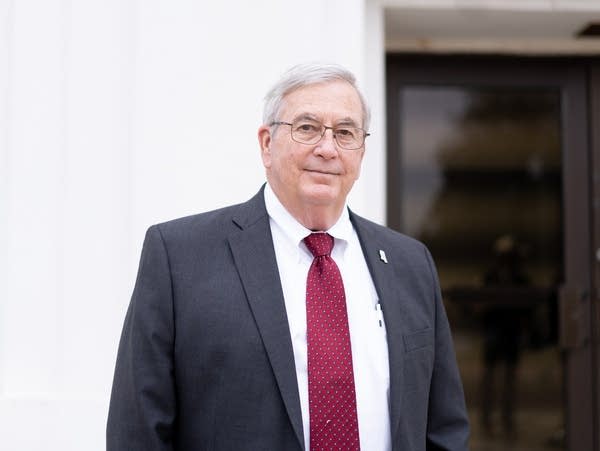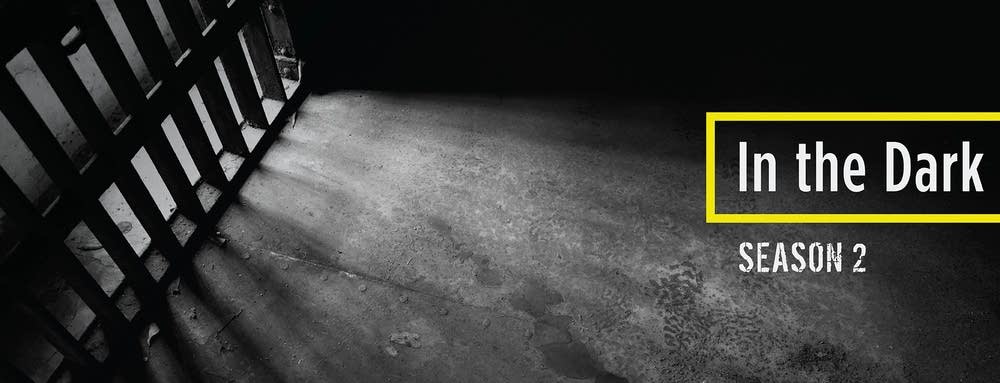Evans quits the case
Mississippi prosecutor Doug Evans takes himself off the Curtis Flowers case

The district attorney who's tried Flowers six times for the same crime will no longer handle the prosecution.
January 6, 2020 | by Parker Yesko
Doug Evans, the Mississippi district attorney who has tried Curtis Flowers six times for the same crime, has asked to be removed from the case.
In a court filing late Monday afternoon, Evans voluntarily recused himself from further prosecution of Flowers. He asked Circuit Judge Joey Loper to assign the case to the Mississippi attorney general's office.
"While I remain confident in both the investigation and the jury verdicts in this matter, I have come to the conclusion that my continued involvement will prevent the families from obtaining justice and from the defendant being held responsible for his actions," Evans wrote in the filing.
The recusal doesn't end the prosecution of Flowers for the 1996 murders of four people at a Winona, Mississippi, furniture store. But if Loper grants Evans' request, as he likely will, it does mean that Flowers' fate is no longer in the hands of a staunch courtroom adversary who's fought for more than two decades to have Flowers executed.
"Doug Evans had no business staying on this case, and we are pleased he recused himself," Flowers' lawyer Rob McDuff, with the Mississippi Center for Justice, said in a statement. "We look forward to what we hope will be an impartial review of this case by the new attorney general of Mississippi."
Evans could not be reached for comment on Monday. In an interview with In the Dark in mid-December, the 67-year-old Evans wasn't resolute about staying on the case. He said he'd had discussions with the attorney general's office about potentially handing off the case but had yet to decide whether to recuse himself. "I just want to make sure that if it's done, there's somebody that's competent in handling it," he said.

Flowers, who has maintained his innocence, was first convicted of the murders at Tardy Furniture in 1997. His death sentence from that trial and three later convictions prosecuted by Evans were overturned on appeal. Two other trials ended in hung juries. The latest reversal came in June when the U.S. Supreme Court vacated the conviction from Flowers' sixth trial, in 2010, finding that Evans had discriminated on the basis of race during jury selection.
Evans had yet to publicly announce whether he would try Flowers a seventh time. In an extraordinary development last month, Flowers, who'd been incarcerated for nearly 23 years, was freed on bail.
In granting bail on Dec. 16, Loper pointed to the state's weak evidence against Flowers, and criticized Evans for not responding to motions in the case and not appearing in court.
In his statement on Monday, McDuff said he hopes the attorney general's office drops the case.
"As the trial judge indicated when granting bail, the evidence of innocence has become even more clear since the last trial," he said. "There is no reason to continue wasting taxpayer money and putting everyone through a seventh trial. Curtis Flowers is innocent. This misguided prosecution has been plagued from the beginning by misconduct and racial discrimination, and it is time to bring it to an end."
The current attorney general, Democrat Jim Hood, recently lost his bid for governor and will leave office this week.
"Doug Evans has been an honest lawman and prosecutor for as long as I can remember," Hood said in a written statement to In the Dark. "My personal two-bits is the facts are sufficient for the case to be retried. Appellate courts are made up of humans, just like us all. In extremely rare cases, I have seen them allow emotions to overcome logic in tough cases."

The attorney general-elect, Republican Lynn Fitch, will lead the team that likely decides whether to try Flowers again, offer him a plea deal, or drop the charges against him. At a campaign event on Halloween, Fitch said she hadn't yet discussed the case with Evans or anyone in the attorney general's office. "That's just a case that'll have to be evaluated when I get into the office," she said.
Evans had been prosecuting Flowers for most of his 27 years as the region's chief attorney and though every one of the convictions he'd obtained in the case had been reversed due to his own wrongdoing, he had never wavered in his resolve that he'd sent the right man to death row.
The extraordinary legal battle was the focus of Season Two of In the Dark, an investigative podcast produced by APM Reports. When In the Dark first interviewed Evans about the Flowers case in early 2018, he said there was "no question at all" that Flowers was guilty. "There's nothing weak about this case," he said.
Much has changed, however, since Evans made those comments. In its years-long investigation, In the Dark found significant flaws in nearly every major piece of evidence in the case against Flowers, including the two key prosecution witnesses who recanted their testimony against Flowers. The podcast also found that evidence pointing to an alternate suspect was never turned over to Flowers' defense team. Though Evans has remained a seemingly invincible politician — in November, he won his eighth term as Mississippi's Fifth Circuit Court district attorney in an uncontested election — his most well-known case seemed to be coming undone under his leadership.
A year ago, Flowers was granted the rare opportunity to have his appeal reviewed by the Supreme Court. In March, when the case was argued in Washington, D.C., Evans' striking of black prospective jurors during Flowers' trials came under intense scrutiny from the justices. Even the lawyer sent by the Mississippi attorney general's office to defend Evans' handling of the case conceded that "the history in this case is troubling." When the high court finally ruled in June, all but two of the nine justices agreed that Evans had discriminated on the basis of race during jury selection, in violation of the Constitution. The majority opinion, authored by conservative Justice Brett Kavanaugh, condemned Evans' "relentless, determined effort to rid the jury of black individuals" in Flowers' trials. The ruling vacated Flowers' conviction and death sentence, and sent the case back to the trial court in Mississippi.
All summer and fall, a will-he-or-won't-he air hung over the case as Evans was forced to contemplate the possibility of trying Flowers a seventh time. Though the prosecutor seemed unfazed by Kavanaugh's opinion, calling it "a ridiculous ruling" in The Winona Times, there were signs that he might be facing pressure from closer to home to bring in help. Mississippi Gov. Phil Bryant had his legal staff conduct a review of the case, and Attorney General Hood reportedly discussed the case with Evans and offered his assistance. Evans' wife even told a reporter for another Mississippi paper, The Sun Herald, that she was "pretty sure" her husband wouldn't take the case to trial again. "I wouldn't try it after all this mess. ... Someone else needs to try it," Patsy Evans said.
A strongly worded editorial published in The Greenwood Commonwealth, which circulates in part of Evans' district, called Evans' role in the case "beyond repair" and implored him to step aside. "A fresh set of prosecutorial eyes needs to be asked to examine the evidence and decide whether there is really enough to proceed. Evans has too much pride invested in this case to make that determination objectively," the paper argued.
And shortly after his re-election, four of Evans' black constituents and a local branch of the NAACP sued the prosecutor in federal court for what they claim is his pattern of excluding African Americans from juries.
Though a possible seventh trial may still be months off, the new prosecutor will have to get to work on the case soon. McDuff filed a motion in September asking Loper to dismiss all the charges against Flowers. The state has yet to respond.
Even if Flowers is brought before a jury for a seventh time, the dynamics of the case have fundamentally changed. Flowers is out of jail, and Doug Evans, it appears, will soon be off the case.

